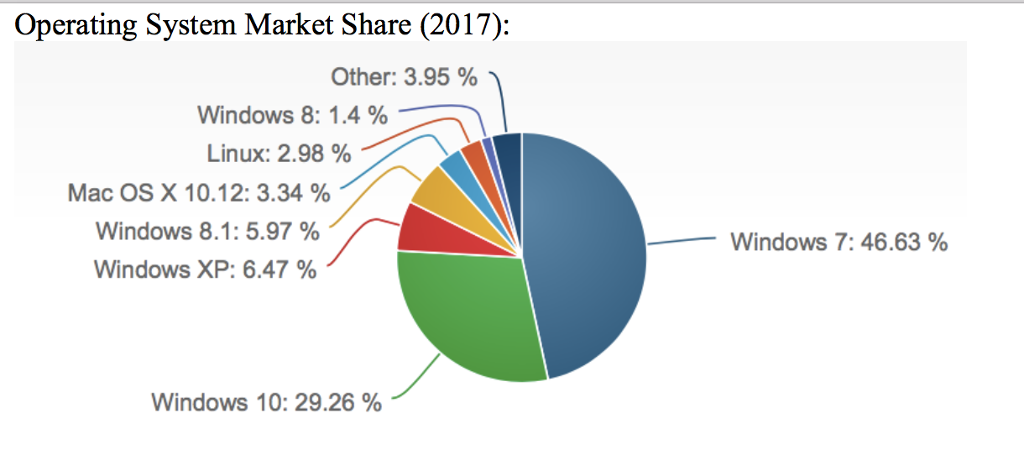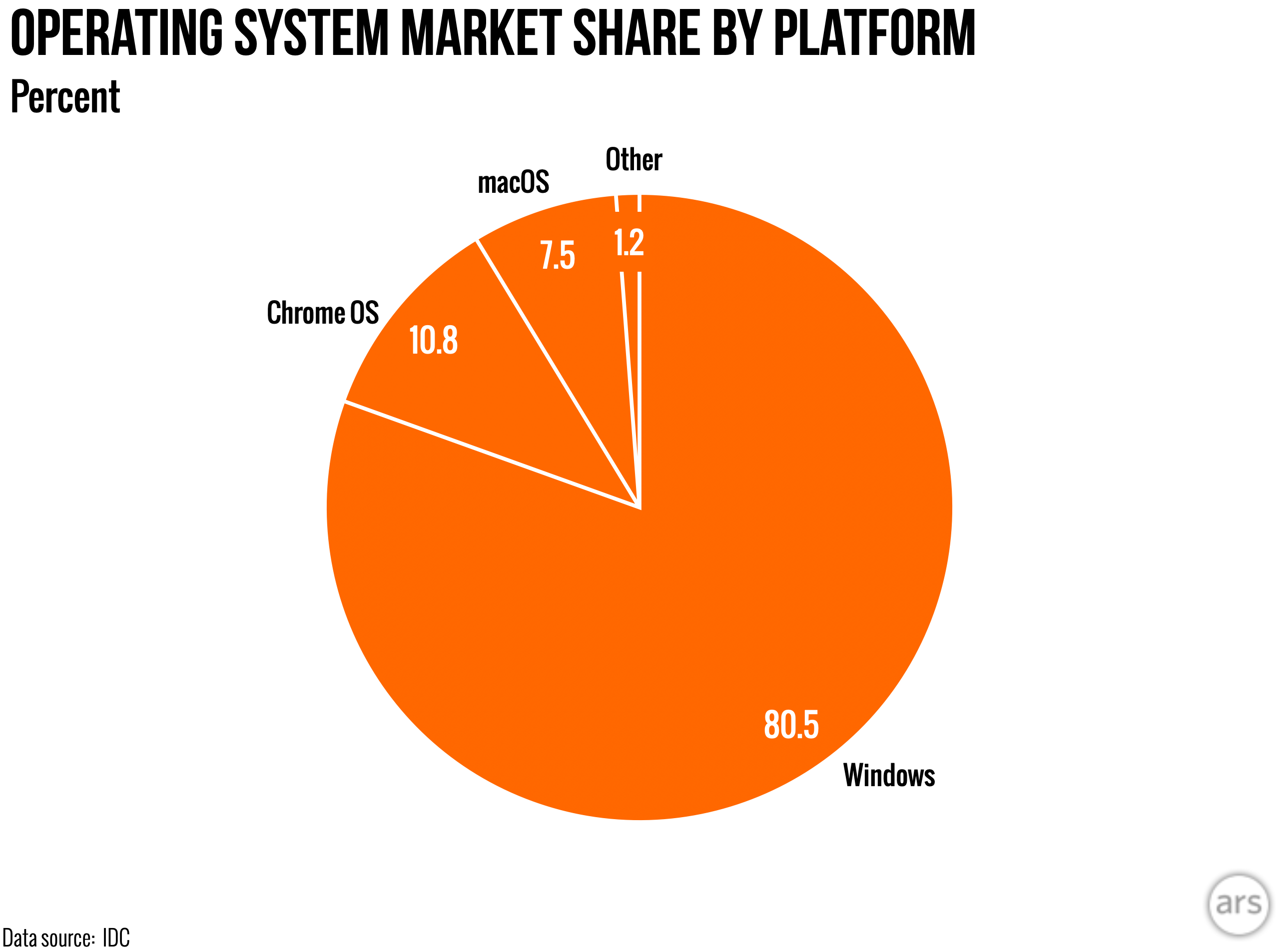

What is the best free operating system?Īlso, FreeBSD is much similar to Linux, and you will find a lot of features and facilities that are even available on Linux. This paper looks at the most popular operating systems, number of users, and their history.
Os market share desktop windows#
For desktop PCs, Windows is the most popular operating system. The most installed operating system in the world is Android. › Computer operating system market shareįrequently Asked Questions Which OS has the most users worldwide?Īndroid is now the top OS in terms of total internet usage across desktop, laptop, tablet, and mobile combined, according to StatCounter with 37.93 percent of the worldwide OS market, just ahead of Windows, which has 37.91 percent.(And in the meantime, people will continue to predict the rise of Linux on the desktop.)Ībout the stats: The OS market share data from StatCounter is based on visitor stats from more than three million websites. There’s nothing wrong with that, not everything has to go mainstream. Perhaps Linux will just continue to be a small niche desktop OS. Several people here at Pingdom use and are quite happy with Linux (primarily Ubuntu). Linux is not in any danger of going away, so it’s quite possible that all of this doesn’t matter. Although Linux on the desktop is a far better experience these days than it used to be, it hasn’t been able to catch up with the other OSs out there that provide a more unified front to the end user. Some of the charm of Linux is that it is so flexible, and that you have so many choices available to you, but this can also be a curse when it comes to mainstream adoption. Then of course there’s the marketing aspect of it, branding, building mind share, and getting manufacturers to include Linux as a viable option on their computers. If the goal is to bring in new users, that approach is a big no-no since it will alienate the vast majority of the population. And this may be the hardest one of all: Don’t build for Linux’s current hardcore audience of tech geeks.Be fanatical about consistency and usability.Polish the product (yes, you have to think of it as a product) until it shines, and make sure there are plenty of polished apps to go with it.Center around one Linux desktop distribution.This would demand the support of a more or less unified Linux community, so it might be unfeasible, but one can dream, right? Here are some things that we think could be done to make Linux more popular on the desktop.

What can be done to grow Linux on the desktop? It has become the largest Linux desktop OS distribution by far, but the question is, why hasn’t it been even more successful?Įven with the relative success of Ubuntu, it looks like it may have mostly cannibalized the market share of other Linux distributions instead of bringing new people to Linux. Ubuntu’s rise to fame since its launch in 2004 has been remarkable. The important point here is that the market share is tiny, and isn’t really going anywhere.

Other sources than StatCounter will show slightly different market share data, but it’s always around one percent. We should point out that there will be slight variations in the estimated market share depending on the source and the method used for acquiring the data. Here below you can see the last two years of Linux’s desktop OS market share. Here is the current desktop OS market share distribution, courtesy of StatCounter:Īs of July 2010 Linux had less than one percent of the desktop OS market.

Linux hasn’t even been able to claim a single percent of the desktop OS market. The sad truth is, Linux on the desktop has so far failed to really take off. Well, it’s now 2010, and desktop Linux isn’t even close to 20%. To name just one of many examples, in 2003, Siemens Business Systems predicted that Linux would have captured 20% of the desktop market by 2008. Linux enthusiasts have been predicting the rise of Linux as a desktop OS for the better part of a decade. It has become a resounding success as a server OS (for example as the L in the famous LAMP stack), and more recently as a mobile OS (Android). Linux has been around for almost two decades now.


 0 kommentar(er)
0 kommentar(er)
